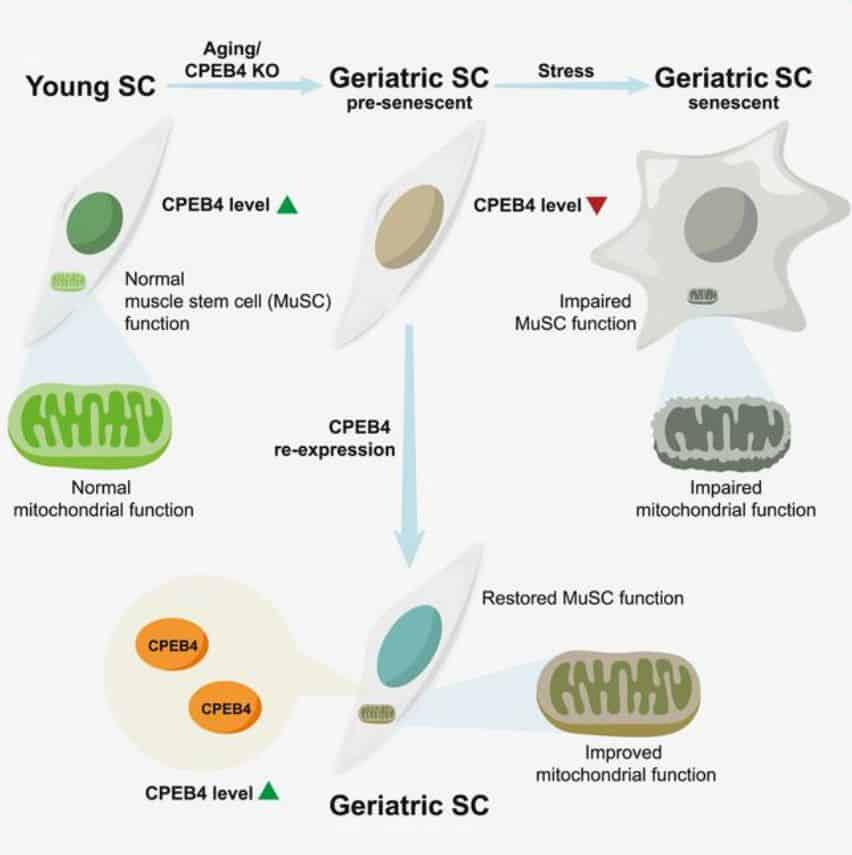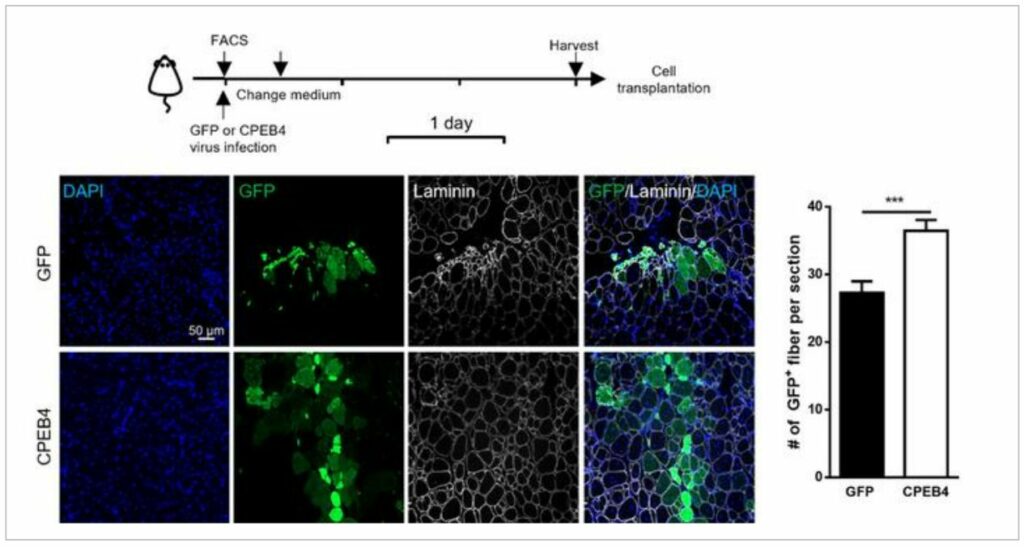A Single Protein That Can Help Increase Lifespan and Prevent Age-related Diseases Has Been Identified by Scientists
Scientists say this protein may help reverse the aging process and prevent age-related diseases.
A group of scientists from the Hong Kong University of Science and Technology (HKUST) has uncovered a crucial protein that could offer insights into counteracting the process of aging. This was discovered using adult muscle stem cells (MuSCs) as a reference system.
The findings create a solid foundation for potential future developments in the treatment of aging-related and various mitochondrial disorders.
As humans age, their cells transition into a state of cellular senescence. In this state, cells stop dividing but don’t die, somewhat akin to ‘zombie cells.’ These cells accumulate over time, inflicting cellular damage and contributing to aging-related defects.
Crucially, the cells’ capability to sustain healthy functioning depends on their power to create chemical energy, for which mitochondria – the cell’s energy factory – is responsible. But with aging, the cells’ energy production ability wanes.
The diminished activity of mitochondria is linked to cellular senescence in numerous tissues. For MuSCs to efficiently repair injured skeletal muscle and to sustain the stem cell reserve for future regeneration, maintaining proper mitochondrial function is imperative.
However, the signal paths that regulate mitochondrial metabolism during aging remain somewhat enigmatic.

The study headed by Prof. Tom CHEUNG, the S H Ho Associate Professor of Life Science, pinpointed the function of CPEB4, a protein that binds to mRNA.
This protein helps preserve mitochondrial metabolism by enhancing the biosynthesis of mitochondrial proteins, thereby ensuring adequate energy production. The team discovered that the levels of the CPEB4 protein receded in various aging tissues in mice, particularly in skeletal muscle.
Furthermore, they found signs of senescence in aged muscles following injury, indicated by a heightened presence of a marker of senescence, the senescence-associated β-galactosidase (SA-β-gal), when compared to adult muscle.

Importantly, their study found that reintroducing CPEB4 expression in aged MuSCs led to an increase in mitochondrial protein production, a surge in energy output, and remarkable resistance to cellular senescence.
Interestingly, the insertion of MuSCs re-expressing CPEB4 into elderly mice resulted in enhanced muscle repair. Similarly, the expression of CPEB4 in a variety of human cell lines also offered protection against cellular senescence.
“Our findings highlight the importance of maintaining mitochondrial functions and its proteome by mRNA-binding proteins in muscle stem cells,” comments Prof. Cheung.
“More importantly, our study provides new insights into the diagnostic and therapeutic potential of CPEB4 to rescue mitochondrial defects and reverse cellular senescence during aging.”
This “work also lays the groundwork to study further the feasibility of developing CPEB4 as a potential therapeutic target for various mitochondrial diseases such as Leigh Syndrome.”
The findings were published in the Developmental Cell.
Image Credit: Getty
